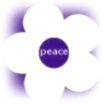| | Military spending | White Poppies for Peace | WW1 anniversary index page
| World War One Centenary
Peace Project
| |
|
#LestWeForget the costs and consequences of
militarisation since the end of "the war to end all wars"
Challenging militarism and building peace: Check out these disarmament campaigns and peace projects in Aotearoa New Zealand
#LestWeForget: ANZAC Day 2023 ‣ on Facebook ‣ Tweet
ANZAC Day 2023 Peace Events
‣ Share on Facebook ‣ Re-Tweet
"War is a waste of time. It solves nothing": Sir Robert 'Bom' Gillies, 25 April 2023 ‣ on Facebook ‣ Tweet
ANZAC Day Window Posters:
‣ Honour the war dead by ending war posters in a selection of colours / black and white are available here. ‣ White Poppies for Peace: a selection of white poppy images to print as a poster, or to print and cut out to make your own display, are available here.
If you are organising an ANZAC Day peace vigil and would like it advertised, please send the details to Peace Movement Aotearoa. More information about the peace vigils is available here and resources for vigil organisers are available here.
#LestWeForget: Armistice Day 2022 ‣ on Facebook ‣ Tweet
Militarisation of children, young persons and education web page
‣ How to explain ANZAC Day to toddlers, 21 April 2016
Remember the Brave: children's book about conscientious objectors
‣ Information about the book
‣ Reading at Poets for Peace and Planet, 3 November 2018
‣ Wellington launch, 22 September 2018 - On Facebook - A4 poster - On Scoop
- Photo album
‣ Palmerston North launch, 2 September 2018
Lest we forget the end of "the war to end all wars", 11 November 2019
World War One anniversary and subsequent peace vigils
Remembering war / ending war: Challenging militarism and building peace, 18 and 19 April 2015 - On Facebook - Web page - Photo album
Resource: Poster Series Showcasing Opposition to World War I
Not in our name: Nationwide peace vigils on 5 March 2015 - Photo album
Open letter on military deployment to Iraq, 11 February 2015
'Lest we forget' Quaker statement, May 2014 - Formatted for printing
- On Facebook
World War 1 Study Day on 8 November 2014
- poster - on Facebook - photos
Please scroll down this page for: information on the WWI anniversary discussion meetings, comment and photos, and how you can be involved.
- Introduction
There has been increasing concern among peace people as the government's World War One (WWI) centenary programme has been unveiled, especially around the topics that are unlikely to be covered in the official programme. These include general issues around militarism, nationalism and national identity, and the privileging of military 'heroism' and 'sacrifice'; as well as specific issues such as how Maori, conscientious objectors, women, and returning soldiers were treated during and after WWI.
Although the WWI centenary begins in August 2014, the government's first major focus is going to be ANZAC Day 2015, the anniversary of the invasion at Gallipoli, and the opening of the $95+ million National War Memorial Park.
In the run-up to April 2015, references to "the Gallipoli campaign" as an important symbol of national identity are likely to be increasingly common, and likely to be largely unchallenged - but do we really want our national identity to be based in part on the invasion of a country on the other side of the world, which killed an estimated 87,000 people there as well as 56,633 of the invading troops?
The government 'New Zealand WW100' campaign asks "How are YOU going to remember?" Surely the more important question is "what are we going to remember?" Will it be based on a government-controlled narrative designed to construct a particular national identity, or will it include a diversity of narratives that provide a more accurate and realistic assessment of the horrors and complexities of "the war to end all wars", and of the responses to it - both at the time and now.
From late 2013, Peace Movement Aotearoa held a series of discussion meetings with peace and related groups and communities around the country to share common concerns about the government's centenary programme and to develop a range of alternatives to it, and consultation with our members and supporters is ongoing. If you have concerns about the government's centenary programme or are interested in being involved in alternatives to it, please contact Peace Movement Aotearoa with 'WWI anniversary discussion' in the subject line of your message.
- Comment and photos
- How you can be involved
If you are interested in being involved in the WWI anniversary discussion meetings for peace groups and peace communities, please contact Peace Movement Aotearoa with 'WWI anniversary' in the subject line of your message.
WW1 anniversary index page | Military spending | White Poppies for Peace |
